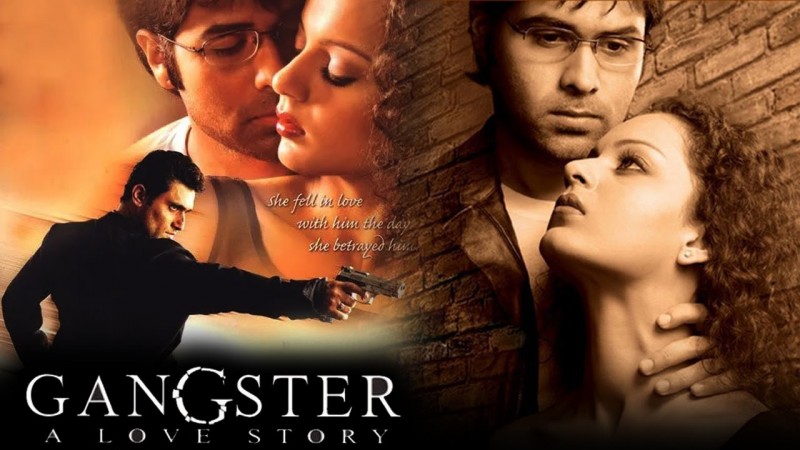
In order to create memorable and emotionally impactful scenes, directors, writers, and cinematographers have always used elements from other stories as their own in the cinematic medium. An example of this kind of inspiration can be seen in the final scene of the film "Gangster," which is eerily similar to the final scene of Ridley Scott's epic masterpiece "Gladiator." In this article, we'll examine the specifics of both films and examine how "Gangster" used "Gladiator" as inspiration to create a stirring and intense climax.
It's imperative to first consider the iconic conclusion of "Gladiator" in order to comprehend the inspiration behind "Gangster's" final scene. A historical epic set in ancient Rome, "Gladiator" was released in 2000 and was directed by Ridley Scott. Maximus Decimus Meridius, a Roman general who is betrayed and left for dead by the corrupt Emperor Commodus, is the subject of the movie. Maximus Decimus Meridius later turns into a gladiator. Maximus advances through the gladiatorial ranks while battling for Rome's independence and exacting vengeance on Commodus.
The journey of Maximus is brought to a close in "Gladiator"'s final scene. Maximus defeats Commodus in the decisive battle at the Colosseum, revealing his treachery to the Roman Senate and populace. However, during the conflict, Maximus receives a fatal injury. The poignant fusion of triumph and tragedy in the movie's climax. Maximus succumbs to his wounds and passes away in the Colosseum's arena after completing his quest for retribution and justice. As the crowd starts to chant his name and recognise him as a hero and a symbol of resistance against tyranny, the camera lingers on his lifeless body. Maximus is seen with his family in the afterlife in a dramatic final shot that emphasises the triumph of his spirit.
"Gangster" is an Indian crime drama that was published in 2006 and was directed by Anurag Basu. It tells a complex story of love, betrayal, and redemption. Simran, a young woman caught in a love triangle between Daya and Akash, two gangsters, is the main subject of the movie. Simran's journey is filled with emotional upheaval as she struggles with the effects of her decisions and the close relationship she has with both men.
The emotional depth and visual splendour of "Gladiator" are mirrored in the final scene of "Gangster." Simran, played by Kangana Ranaut, confronts her fate in this pivotal scene on a deserted beach. Daya (Emraan Hashmi) and Akash (Shiney Ahuja) have a dramatic confrontation at the start of the scene. Simran tries to mediate the argument because she is torn between her love for both men. But as a result of the altercation, Daya and Akash both sustain fatal injuries.
Simran, who is standing in the middle of the mayhem with her emotions in a state of turmoil, comes into focus as the tension rises. As she observes the tragic result of the conflict she unintentionally sparked, her agony and desperation are palpable. Simran is captured by the camera in a series of up-close shots that highlight her inner conflict and the significance of her decisions.
Simran's turning point is similar to Maximus's dying moments in "Gladiator." The surrounding chaos and the impending tragedy heighten the emotional intensity. Simran is a character who wrestles with the results of her actions and is ultimately atoned for through sacrifice, much like Maximus did.
The final scene of "Gangster" is significantly influenced by "Gladiator" in the following ways:
Maximus and Simran both have to make life-altering decisions that result in a climactic conflict in "Sacrifice for Redemption." They each give up their own wants and needs in favour of a greater good. Maximus seeks retribution for Rome, whereas Simran looks for emotional comfort and atonement for her deeds.
The visual aesthetics used in "Gangster" are comparable to those in "Gladiator" in order to increase the emotional impact of the scenes. The inner turmoil of the characters and the seriousness of the situations they encounter are both depicted in both movies through slow-motion shots and close-ups.
Ambiguous Results: Both scenes come to an ambiguous conclusion. In "Gladiator," Maximus's destiny is left up for speculation because he meets his family again in the afterlife. Simran's fate is left unclear at the end of "Gangster," leaving it up to the viewer to decide whether she finds redemption or bears the consequences of her actions.
Triumphant Music: To enhance the emotional resonance of their respective scenes, both films use strong, triumphant music. The characters' sacrifices are given an additional sense of grandeur and poignancy by the music.
Inspiration frequently transcends national boundaries and genres in the world of film. The sweeping historical drama "Gladiator," an Indian crime drama, served as an inspiration for "Gangster." The final scene of "Gangster" deftly borrows from the dramatic weight and visual splendour of "Gladiator," producing a potent and intense conclusion that echoes the themes of sacrifice and redemption.
We can better understand the themes that connect with viewers from all backgrounds and eras by analysing the similarities between these two scenes. While incorporating its own distinct cultural and narrative nuances, "Gangster" pays homage to the cinematic brilliance of "Gladiator" while also adding its own, resulting in a memorable and emotionally impactful conclusion that stands on its own.
Mausam (2011), A Cinematic Odyssey Through the Changing Seasons of Emotion
Katrina Kaif Radiates as Uniqlo's Beacon in India's Fashion Galaxy